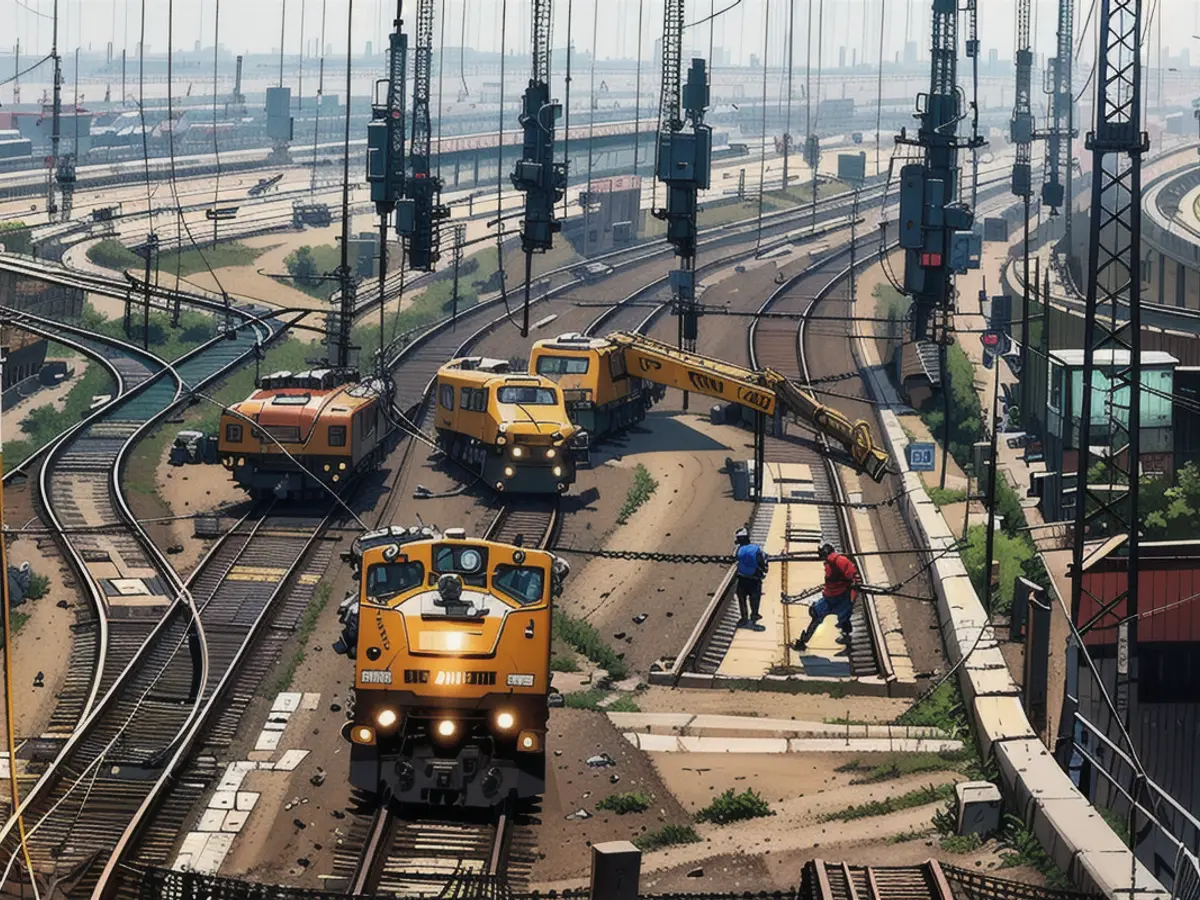Institutions urge for massive investments.
Improving the power grid, upgrading the railway system, and refurbishing buildings to better conserve energy: these are all massive undertakings. To carry out these tasks, Germany would need to secure significant funds - even with the debt limit in place. A study offers suggestions on how this could be achieved.
Economic research institutes see a dire need for financing in Germany due to the state of a partially rundown infrastructure and the battle against climate change. Their analysis by the Institute for the German Economy (IW), an employer-aligned organization, and the Institute for Macroeconomics and Economic Research (IMK), a union-aligned institute, suggests a total of 600 billion euros would need to be spent within the next decade.
IMK director Sebastian Dullien emphasizes the necessity of a debt brake reform. The timing of this study is interesting, as government discussions are underway regarding the 2025 budget and the FDP insists on sticking to the debt brake, incorporated in the Basic Law, which limits new borrowing capabilities. He stated that with such a significant investment backlog, "ideological blinders" must be removed and "bold and decisive actions" are required.
IW director Michael Hüther emphasizes that Germany faces a daunting task when it comes to Upgrading and modernizing its infrastructure and achieving a climate-neutral transition. "We really need to take action here." The researchers expect approximately 200 billion euros over ten years for public investment in climate protection, including energy-efficient renovations for buildings or the expansion of the electricity and hydrogen networks. About 127 billion euros will be needed for transport routes, with nearly 60 billion euros exclusively dedicated to rail network modernization.
Could investments be financed via funds?
While 600 billion euros appears daunting over ten years: In relation to Germany's GDP, the demand for added funding of around 60 billion euros annually, or about 1.4% of annual GDP, is manageable, the institutes claim. The debt brake could be supplemented by a "golden rule" that would exclude investments from the current borrowing limit.
Another potentially "politically more acceptable" alternative would be a sizeable infrastructure fund of 100 billion euros, similar to the special fund for the German military, also exempt from the debt brake. Transport Minister Volker Wissing of the FDP has also suggested a dedicated infrastructure fund.
In a 2019 study, the same institutes identified an additional investment requirement of 450 billion euros. Due to increased climate protection requirements and construction costs, the total has since increased.
this paraphrased text was written by ChatGPT
Read also:
- Lack of snow also opens up new opportunities for winter tourism
- Abrupt end to e-car subsidies
- The chemical industry has little confidence
- Intersport boss hopes for sales boom through sporting events
- Despite the debt brake, Germany needs to find ways to finance the massive investments required for upgrading the power grid, promoting sustainable transportation, and energy-efficient building renovations, as suggested by economic research institutions like the IW and IMK, totaling approximately 600 billion euros over the next decade.
- The FDP, a political party in Germany, advocates for adhering to the debt brake, yet IMK director Sebastian Dullien argues that with an estimated 600 billion euros investment backlog, the debt brake needs reform, and bold actions are necessary.
- To finance these investments, the Cologne Institute for Economic Research proposes a "golden rule" that would exclude investments from the current borrowing limit or establish an infrastructure fund of 100 billion euros, similar to the German military's special fund, both exempt from the debt brake.
- In 2019, the same economic research institutes estimated an additional investment requirement of 450 billion euros for climate change mitigation and infrastructure development, which has since increased due to escalating climate protection requirements and construction costs, as per a recent study.
Source: www.ntv.de








